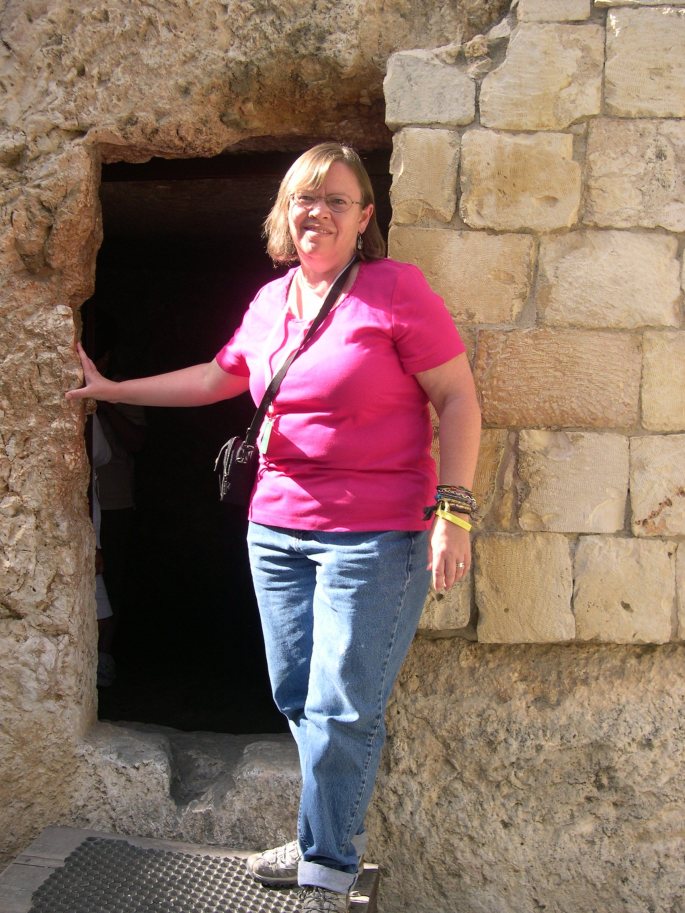Today I was reminded of why I love learning biblical Hebrew. I’m just a beginner, but every time I discover something interesting in a Hebrew Bible verse, it makes me want to dig deeper.
Grab your Bible and read Psalm 1:1. The first word of Psalm 1 is well known. “Blessed” is how it’s often translated into English. “Blessed is the man” (or woman/child/person). The Psalm goes on to give the reasons why that person is blessed.
Blessed can be such an abstract idea in English. What does it really mean? It’s easy to think of it as “If I do this, I will be blessed” (at some point in time), or “I will receive blessings from God in this type of circumstance.” Or maybe “Wow, that person is very blessed. They seem to have a lot of favor” (for an unknown reason). Do you see how dangerous that kind of thinking can be? The idea of getting a blessing in exchange for doing something can lead into a works mentality. The idea that someone is blessed for an unknown reason can lead to envy or a sense that blessing is fleeting or beyond grasp.
None of these are true. We are blessed because we belong to God. Not because of what we do but simply because we are His. Christ is the source of all our blessing, and if we have made Him the Lord of our life, we all have access to that same blessing. He doesn’t pick and choose among those who belong to Him. We don’t need to strive for blessing, and we don’t need to feel a lack of blessing when we see someone else who appears to be “blessed.” In fact, another person’s blessing is evidence to us that God is who He says He is. What a cause for celebration and rejoicing! Everyone’s blessing points to God (see James 1:17).
Because it’s so easy to twist the meaning of a word, especially in translation, this is one of the reasons I like to learn more of the Hebrew words in the Bible. Looking more closely at the Hebrew doesn’t change the meaning of the scripture. I have great respect for each of the major English translations of the Bible, and I appreciate how much work and accountability went into each decision for every word. I feel comfortable reading from any of the major Bible translations. But for me, looking at the Hebrew helps my human mind and heart understand a little more deeply, and it always ends up growing my faith in God. When I read in English, it’s too easy to skim over a word and miss the depth of its meaning. Slowing down and taking time to look at some words in Hebrew helps me really focus in on what God is saying and anchor myself more deeply in His truth.
While the first word of Psalm 1 is often translated into English as “blessed,” it is also translated sometimes as “happy” or “fortunate.” These words can sometimes have abstract or frivolous connotations in American English today, and the words have meant different things at different times in history and culture. But in Hebrew, the first word of Psalm 1 conveys a deep state of well being. So, no matter which word is used in translation or which way we understand it best, that’s the sense we need to get: a deep state of well being.
The Hebrew word, as it’s used in Psalm 1:1, is אַ֥שְֽׁרֵי־ (sounds kind of like “ashrey”). The grammatical form of this word, as it’s written in this text, indicates that it’s somewhat akin to a possessive word in this sentence. So it might be understood most simply as “the blessedness of the man” or “the man’s blessedness” (or happiness, or fortunateness).
Do you see how much more deeply this sense of possession or belonging to anchors the word in your heart? It’s not some abstract idea of blessing or being blessed. It doesn’t have a frivolous sense of “Let’s just all be happy.” Nor does it evoke a feeling of jealousy or a fleeting sense of fortune. Instead, it is the very blessedness (happiness, fortunateness) belonging to that person. It’s a deep quality of well being that person possesses.
This opening phrase of Psalm 1:1 is also written in the form of an exclamation, which would be something like, “Oh, the very blessedness (happiness, fortunateness) of this person!” It’s a quality you can see flowing from that person, like a river that starts from a spring deep in their innermost being, and then bubbling up and overflowing. (I encourage you to pause a moment here to look at the connection between Psalm 1:3 and John 7:38 and the blessedness of this person in Psalm 1:1.) Okay, now we’re getting somewhere. We’ve left abstract behind. We are looking at this Psalm 1:1 person and we’re thinking, “Wow, that person is filled to overflowing with a deep state of well being.”
Makes you want to be that person, doesn’t it? That’s different from envy or resentment or striving or futility. You just want to be like that person (who wouldn’t?), overflowing with that sense of deep well being. Well, guess what? You can be. How? God makes it very simple in the rest of Psalm 1:1. Notice there are three verbs that follow (and in Hebrew, they all take the same form, so they mirror each other). God tells you in this verse how and where to walk, stand, and sit. And what it all boils down to is to walk, stand, and sit in the presence of God.
Granted, this Psalm is written with a series of contrasts. The psalmist shows us how and where not to walk, stand, and sit. Why? Probably because he knows every minute of every day, we are faced with tons of temptation and we get easily swayed by fear, criticism, self-doubt, and much more. It’s like the psalmist knows we are already looking the wrong way. So he says, “Nope, not that way. This way. Toward God. Stay close to God.” And when we listen to the wrong things, “Nope, that’s not the suggestion to follow. Listen to God instead. Turn around. He’s right here.”
And what happens when we turn around and refocus on God (which we are invited to do in verses 2 and 3)? What happens when we wake up each morning and decide our biggest goal for the day is simply to be in God’s presence, and everything else will fall into place? Well, guess what? When we choose to focus on God, that’s when we become that Psalm 1:1 person who is filled to overflowing with a deep sense of well being. When we choose to live intentionally in God’s presence, all of His well being can flow into us, and then it will flow through us to those around us. How amazing is that!
“Wow, the incredible deep sense of well being of that person!”
In God’s presence, that is your truth, and that’s what people will notice and perhaps even say about you. What they are seeing is the Holy Spirit in you and with you. The more you intentionally choose to be in His presence, the more you will overflow with that deep sense of well being. And you’ll be able to tell others where that comes from.
So, choose your favorite Bible translation, and now read Psalm 1:1 again, in translation. Try several translations if you want. See if it hits you deeper in your heart this time. Then read Psalm 1 all the way through, prayerfully, and see what God would like to show you today in His Word. I pray that God will write His Word on your heart today and always. God bless (give a deep sense of well being to) you.
Interested in getting a taste of biblical Hebrew? There’s more to discover on my Biblical Hebrew Lessons page.
Copyright © 2021 by Janet Eriksson
*****
Janet Eriksson is an intercessor, writer, and teacher in Dahlonega, Georgia. She loves conversation with friends, front porch swings, sweet tea, and spending time on lakes and rivers. The author of nine books and editor of many more, Janet blogs and teaches at Adventures with God. She enjoys volunteering with Kerri Johnson Ministries. Janet received her M. Div. from Asbury Theological Seminary.

